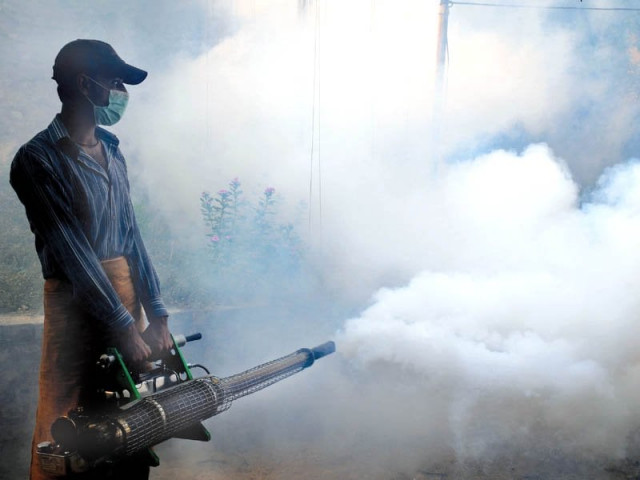Fighting dengue
There is no vaccine to cure dengue, only way to control it is by eliminating habitat of the mosquito that carries it.

Dengue will not be eliminated but it is controllable, and it is to be hoped that its impact in 2014 will not be as severe as it was last year. PHOTO: FILE
There are outbreaks of dengue every year in Pakistan, some of them very severe and causing considerable loss of life as medical facilities become overwhelmed by affectees. In severe cases, dengue has a mortality rate of 26 per cent. The Sindh government is taking some welcome pre-emptive measures in 2014, and has approved Rs40 million for the Dengue Prevention and Control Programme. There are unconfirmed reports that the government is considering hiring experts in disease control from Sri Lanka and there has already been an exchange of information between Sindh and Punjab agencies. Most of the budgetary allocation is to be spent on preventive measures, which will include a programme of community awareness-raising and a campaign to spray standing waters. Whilst this is laudable, it will be recalled that spray vehicles were standing idle during the last outbreak in Karachi apparently because there was no money to pay for fuel. Karachi, with its ever-expanding and unregulated population, provides an ideal environment for dengue. It is an opportunistic disease and prone to ‘moving on’ when it is driven from one area. Thus it was that there were many cases in Swat last year, an area that had seen but few cases in previous years. Dengue will not be eliminated but it is controllable, and it is to be hoped that its impact in 2014 will not be as severe as it was last year.
Published in The Express Tribune, February 24th, 2014.
Like Opinion & Editorial on Facebook, follow @ETOpEd on Twitter to receive all updates on all our daily pieces.















COMMENTS
Comments are moderated and generally will be posted if they are on-topic and not abusive.
For more information, please see our Comments FAQ